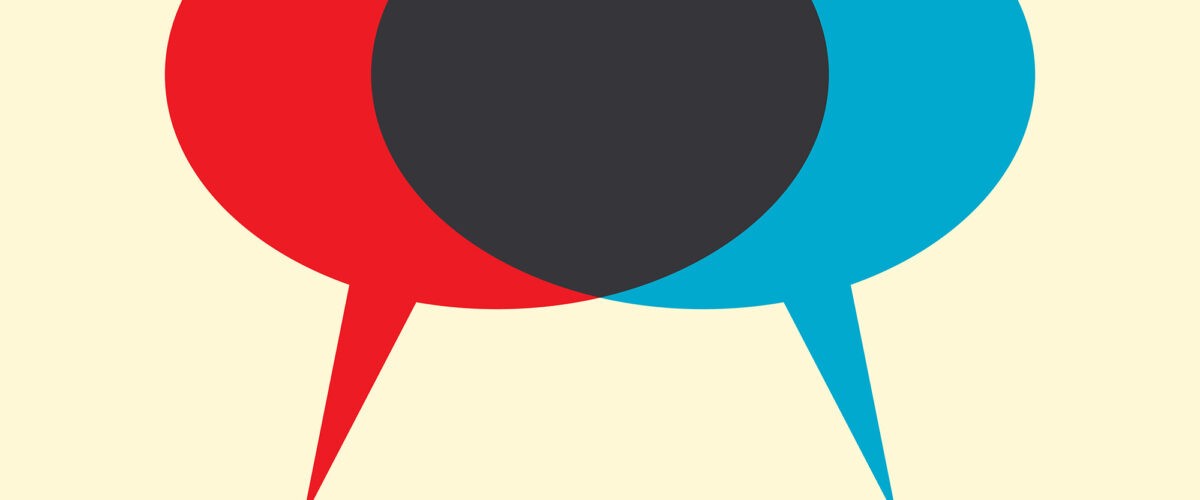Less than an hour after Donald Trump was shot, one of my most liberal friends posted a meme making light of the situation. I phoned to confront the callousness. Things got heated. When I blurted, “Stop acting like a 2-year-old,” the person hung up on me.
It was the worst of times; it brought out the worst of lines. We were not at our best. I texted an apology. The person called back but didn’t relent on deleting the meme.
Another friend quickly used the shooting to harp about gun control. I responded, “Too soon” — asserting the moment demanded empathy rather than politicking. In contrast to the first friend, my second friend deleted their post.

Brad Bull
When passions are high, we are at risk of our tongues and typing fingers getting ahead of civil discourse. My friends and family certainly can testify to my own failures.
Lately, I’ve been struck by the amount of hostility well after the passage of time typically assuages our anger-muddled thinking.
The morning after
On the morning after the election, I found myself unsurprised by some people’s gloating posts. But I was stunned by one celebratory post — using Christian language — by one of the last people I would have expected to be a Trump supporter, much less a gloating one. Some commenters applauded the post, while others were taken aback and expressed their dismay at the tone of the post and subsequent comments.
“Some commenters applauded the post, while others were taken aback and expressed their dismay at the tone of the post and subsequent comments.”
I wrote a private reply but decided to let it percolate.
My subsequent workday involved nine counseling sessions. The majority of those nine sessions involved expressions of deep pain about the election. A few used words like “terrified.” Mostly the fear was for family and friends who are gay, transgender or deal with pre-existing health issues. One gave me permission to share these words:
I’m scared. None of us (in my family) are Christian. We used to be. But we know what it’s like to be oppressed and abused by the church (via a minister who abused us). The amount of damage that did? I can’t go back to that. … At the end of the day, (Christians’ grabbing for power is) not about the church. It’s not about the Bible. It’s about obsessive control. They want the world one way, and they condemn those who are different. I’ve been so controlled. I never want to feel that way again. I hated it. I’m terrified it will go back to nothing is (my own); it all belongs to someone else.
After a grueling day of hearing this kind of pain — amplified by the pain being celebrated, I decided to revisit my private message to my friend and send it. There was context.
In 2016, I saw a large white man with a T-shirt that said, “Make a liberal cry. Vote Trump.” He was enjoying a hike with family, and I didn’t want to interrupt to strike up a conversation to find out the source of his sadistic wish for others to hurt. In the meantime, I’ve had many conversations with Trump-supporting folks who left me wondering, “Where is your empathy for people’s pain?”
I’ve heard multiple folks demure that the rioters at the Capitol on January 6 “got a little out of control.” But the folks refuse to express sorrow about images like a police officer screaming in agony while being crushed. These were not “non-college-educated forgotten working class” folks. They were college-educated, often affluent and always professing Christians. But, for the life of me, I mostly couldn’t hear anything remotely resembling the empathy of Christ.
“For the life of me, I mostly couldn’t hear anything remotely resembling the empathy of Christ.”
Still, I was sending my message to someone I always had found to be gentle and kind. (Sigh.) Here is our exchange.
(Dear Friend):
(PS: I wrote this early this morning but haven’t had time to send, and don’t have time to go see what else may have transpired.)
Food for thought. I’ve spent today providing care to people in deep pain — one person in particular was badly abused by a Christian pastor and is working through fear of Christians that is now magnified by the election of a sexually abusive thug anointed by evangelical Christians.
Please be aware that the celebratory meme this morning — especially with a (Christian catchphrase) — rubs salt in the wounds of many. It feels like gloating rather than empathy. Maybe celebration can be done with people we know to be like minded. (Redacted sentence to protect identity.)
Not going to let the sun set on my anger. These are difficult times. I’m sorry for whatever pain leads to an apparent depletion in the empathy of someone I know to be typically empathetic.
My friend replied:
Brad: I’m not going to engage in a conversation that is completely devoid of logic and reason. Have a good night.
The next morning, during a soothing walk, I paused and wrote, “Peace to you today and every day.” Days later, I haven’t heard back.
Meanwhile, an anti-Trump friend posted this the day after election day:
If you’re grieving, it is because you care. Never apologize for that.
If someone mocks that, pity them. Because that is the real dysfunction.
An ardent Trump-supporting mutual friend empathetically replied, “I get it! I would feel the same way.”
The grieving friend expressed concerns about Trump’s threats like using the military against his enemies. The Trump supporter said Trump has no filter and was just blowing smoke and never actually would do any of that stuff. The exchange ended with the Trump-supporting friend excitedly expressing hopes of seeing the Trump opponent at an upcoming social event.
Find the good and praise it
Now, I think it’s naïve at best to think someone “who says what he means and means what he says” will not inflict grave injury to society, at least by creating an atmosphere of hatred (see here and here). Still, I like the adage, “Find the good and praise it,” and I applaud those like this second Trump supporter who rejected public gloating in favor of public empathy — like the Portuguese child in this viral video, consoling a French fan after a World Cup match.
“Good can exist without evil, but evil cannot exist without good.”
Such reminds me of why good must ultimately prevail over evil: Good can exist without evil, but evil cannot exist without good. How so? To carry out a diabolical plot requires good things like intelligence, creativity and the desire to promote one’s own well-being. Thus, buried within evil — whether the liberal or conservative variety — there always must be seeds of goodness. And therein is hope.
For instance, one of the clients I most expected to be upset about the election was not. At one point I said, “I wasn’t going to say anything, but I’m thinking you have something to offer other folks. Many of my clients are upset about the election. You seem pretty chipper. How are you doing that?”
The client said: “I voted. My person lost. Not a thing I can do about that now. Just going to focus on the things I can impact.”
Now, there’s good seed.
Wait, there’s more
Wait. I just woke up in the middle of the night and realized that’s not the end. It implies the chipper person’s spirit is good seed, but the agony of those awash in grief is not.
Oh no. I expected that last person to be upset because they’ve recently been awash in pain. Now I realize: This person is so overwhelmed with immediate threats that they must compartmentalize pain where they can. That is healthy and good seed.
However, others with less immediate threats have more space to mourn election results they experience as threatening. Jesus said, “Blessed are those who mourn.” So, to those queer folk, those woke folk, those with family members with chronic illness and dependent on Medicaid: Your mourning is good seed too.
Others of you feel like one of my most respected mentors who posted on social media:
This feeling I have now is new to me. I don’t know how to process it. I’ve almost always been able to find something good even in the worst of things. I think this is the darkest I’ve ever felt. I am paralyzed. I don’t know how to go out and do my life.
These are the words of an affluent, heterosexual white person with just about every social advantage — except being male. The words express fear not of an immediate threat to the speaker but to the existential threat from environmental protections being eliminated and for the threat to the securities and liberties of others. That is empathy.
To folks like this: Your heart-wrenching mourning is good seed too. To all who are showing empathy: Giving your pain to others is a far, far better thing than some have ever done — and a far, far better zest than some have ever known.
Brad Bull has served as hospital chaplain, pastor, university professor and is currently in private practice as a family therapist.
Related articles:
Are we still of any use? | Opinion by Bill Leonard
The slippery slope of unchallenged lies | Opinion by Mark Wingfield
A divinity student’s post-election playlist: Hymn-singing through times of tension | Opinion by Mallory Challis


